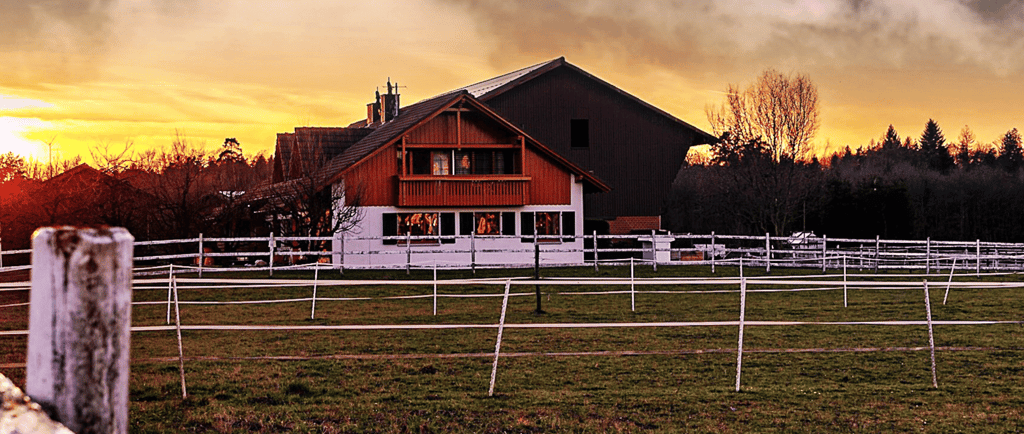Rural vs. Urban Home Inspections: What You Need to Know
When it comes to buying a home, the location plays a significant role in what to expect during a home inspection. Whether you’re purchasing a property in the city or a rural area, the inspection process is essential to making an informed decision. However, the approach to inspecting rural and urban homes can differ greatly due to varying environmental and structural factors. Here's a breakdown of the differences between rural and urban home inspections and why it's essential to hire an inspector experienced in the type of property you're buying..


When it comes to buying a home, the location plays a significant role in what to expect during a home inspection. Whether you’re purchasing a property in the city or a rural area, the inspection process is essential to making an informed decision. However, the approach to inspecting rural and urban homes can differ greatly due to varying environmental and structural factors. Here's a breakdown of the differences between rural and urban home inspections and why it's essential to hire an inspector experienced in the type of property you're buying.
Key Differences Between Rural and Urban Home Inspections
Water Systems
Urban Properties: In cities and suburban areas, homes are typically connected to a municipal water supply. Inspectors will focus on the plumbing system, looking for leaks, pressure issues, and the condition of water heaters.
Rural Properties: Rural homes often rely on private wells for water. Inspecting these systems involves testing the water quality for contaminants, checking the well's condition, and ensuring the pump functions correctly. A well inspection is crucial to avoid potential health issues and costly repairs down the line.
Waste Management
Urban Properties: City homes are generally connected to a municipal sewer system. Inspectors will check the condition of the plumbing system and ensure there are no clogs or backups. You may want to add a Sewer Line Inspection to ensure the main line is in good condition.
Rural Properties: In rural areas, homes usually depend on septic systems or holding tanks. Inspectors will need to evaluate the system’s size and functionality, and in some cases, the soil around the septic field to ensure it can handle the household's waste load. Regular maintenance is essential, and a properly trained inspector will advise on how to properly care for these systems.
Property Size and Outbuildings
Urban Properties: City lots are typically smaller, and the focus is on the primary home structure. Inspectors will check the home’s foundation, roof, electrical systems, and HVAC systems.
Rural Properties: In rural areas, properties often come with large lots, barns, sheds, or additional outbuildings. These structures also need to be inspected for safety and usability. Inspecting fences, barns, and shops for structural integrity and pest infestations is part of a thorough rural inspection.
Infastructure & Accessibility
Urban Properties: City homes benefit from well-established infrastructure, including public transportation, paved roads, and easy access to services like emergency responders, grocery stores, and healthcare. During inspections, the focus may include evaluating parking spaces, driveways, and the proximity of nearby utilities or public works that could affect the home’s value or accessibility if required.
Rural Properties: In rural areas, accessibility can be more limited. Inspectors may evaluate long, private driveways or roads leading to the home, especially if they are unpaved or prone to weather damage. In addition, rural properties might require an inspection of off-grid systems, like backup generators or water storage tanks, to ensure the home remains functional during adverse conditions, such as power outages or poor road conditions.
Access to Utilities
Urban Properties: City homes benefit from readily available electricity, gas, and internet services. During the inspection, inspectors will verify that all these utilities are functioning properly.
Rural Properties: Rural homes may have limited access to utilities or rely on alternative sources like propane for heating or generators for backup power. Inspectors will check the safety and efficiency of these systems and may recommend upgrades to improve energy efficiency.
The Importance of Choosing the Right Inspector
Whether you’re buying a rural or urban property, hiring an inspector familiar with the specific challenges of each environment is crucial. A rural home inspection requires specialized knowledge of systems like wells and septic tanks, while an urban inspection focuses on municipal connections and smaller property sizes. Make sure your inspector has the right experience to provide you with a comprehensive understanding of the home’s condition.
At Just Call Joe Inspections, our inspectors are trained to handle both urban and rural properties, ensuring that no detail is overlooked. Whether you're in the city or the countryside, we provide thorough inspections to help you make a confident home-buying decision.
Hiring an inspector who understands the unique needs of rural and urban homes can save you from unexpected surprises. Reach out to our experienced team at Just Call Joe Inspections to schedule your next home inspection!